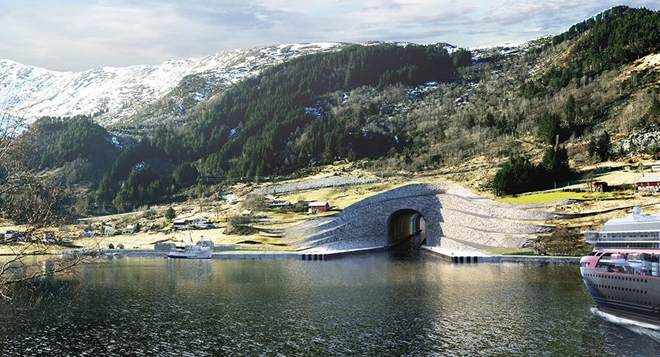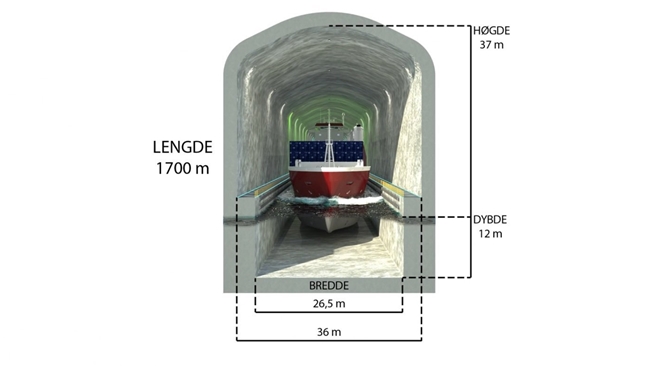Norway to blast world's first ship tunnel through solid rock
After notoriously polishing its cherished Stad Ship Tunnel project for decades, Norway finally seems to be about to kick off this ambitious enterprise. Earlier this week, the Norwegian government and its support parties finally threw their weight behind the costly project, promising financial support, Norwegian national broadcaster NRK reported. This is part of Norway's unparalleled "1 trillion NOK" investment in transports ($120bln).
 |
Accordingly, the Stad Ship Tunnel will receive 1.5 billion NOK ($180mln) in the first period (2018-2023), to be followed by 1.2 billion NOK ($140mln) in the second period (2024-2029), which means that the project, which has been listed as one of the nation's priorities since 2013, is now fully funded.
Conservative politician Bjørn Lødemel called the day "historic."
 |
The 45-meter-high (148ft), 36-meter-wide (118ft) and 1.7km (one mile) long Stad Ship Tunnel is intended to become the world's first tunnel through solid rock capable of accommodating 16,000 metric ton ships, including freighters and cruise ships. The alternative of building a more traditional canal was considered and turned down, since the Stad Peninsula is a solid rock mountainous divide between the Norwegian Sea to the north and the North Sea to the south, peaking at 645 meters.
Whereas using the tunnel admittedly won't save much time, it will most certainly be worth the effort anyway. The mountainous Stad Peninsula on Norway's western coast is infamous for its heavy weather, which endangers maritime traffic. The area commonly records Norway's harshest wind, which leads to delays and shipwrecks when conditions are stormy. A recent review found 46 accidents and near-accidents and 33 deaths had occurred in the waters surrounding the Stad Peninsula since the end of World War II.

